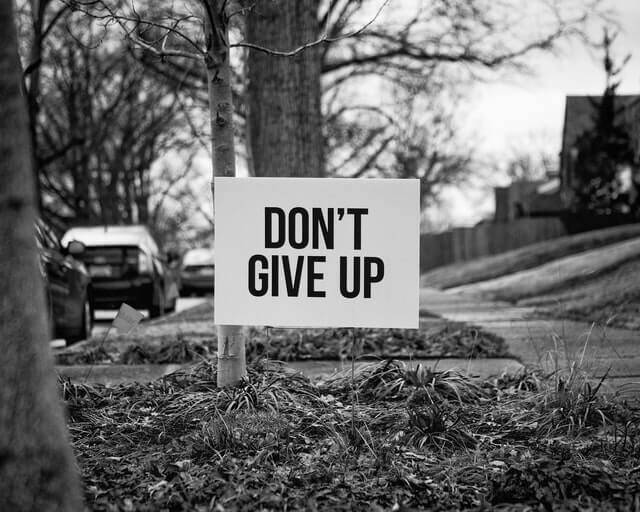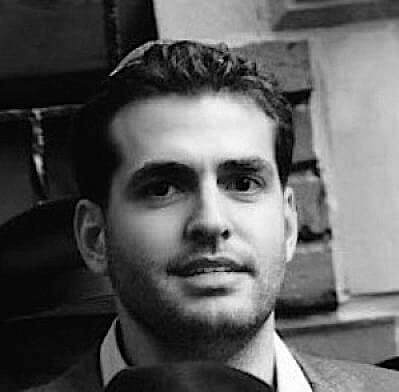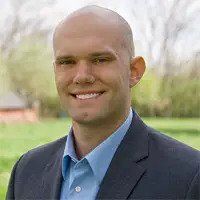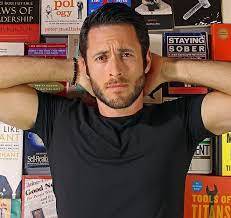
The human brain is plastic, which means that it is capable of change. This is true of every stage of life, not just the formative years. Just as the brain of a porn addict or frequent user has changed for the worse, reversal can take place once new input is applied. The internet is a double-edged sword. While it has led to massive advances in education, communications, logistics, and information technology, it has also fueled an epidemic of pornography addiction, due to easy, widespread access, and a lack of cultural consciousness.
Neuroplasticity: the capacity for continuous alteration of the neural pathways and synapses of the living brain and nervous system in response to experience or injury
Merriam Webster
They say “an ounce of prevention is worth a pound of cure.” However, many people did not have the luxury of being protected from pornography as a child due to the internet and a lack of parental oversight. And there are people who began to struggle with pornography for the first time as adults. Fortunately, it is possible to get completely free from a porn habit or addiction, no matter how longstanding the issue or how great the damage that has been done.
One of my favorite takes on porn reboot/recovery comes from Mark Queppet, the founder of Universal Man. Queppet described quitting porn as “the rite of passage for the modern man.” Queppet’s thesis is that the process of personal growth and leveling up required to beat a pornography habit or addiction equips men [and women] to deal with myriad challenges inherent to modern life.

When men go through this process, popularly called “reboot,†they experience a huge number of positive side effects that go beyond just the realm of sexual health. They become stronger, more disciplined, more focused. They reconnect with a vitality in life. They gain strength that then enables them to go on and do other, more positive things. And it seems like once a man is able to navigate the field of porn–be able to quit porn–he’s able to navigate these other vices, these other issues, and develop a lifestyle that can really help him show up as the man he wants to be
Mark Queppet in Quitting Porn Is The Rite Of Passage For The Modern Man
In this chapter, I present seven tips that anyone can apply today to get free from a pornography habit or addiction. Chances are that if someone continues to struggle with pornography, they can be doing better in one or more of these areas. Most of these items are part and parcel of various porn reboot/recovery programs, and that is because they work.
1. Establish Accountability
Addiction thrives in isolation, especially pornography addiction, where you don’t need a drug dealer, bookie, or slot machine, and almost everyone prefers to be alone in the act for obvious reasons. Many people don’t tell anyone about their pornography problem because of the associated shame and fear of reputational consequences. In addition, the mainstream is often woefully incapable of providing actual help since the issue of pornography is scarcely understood. As a result, people need to be selective about whom they choose to open up to.
That caveat aside, accountability is vital during the reboot/recovery process. There is a Biblical Proverb, “Iron sharpens iron, as one man sharpens another.” Simply put, the advice, support, and presence of a caring, like-minded individual (or individuals) can be a total game-changer. There are also professionals specializing in porn and sexual addiction who are eager to put their time, empathy, and knowledge to work for those who need the extra help.

My friends, I did not last one week away from porn because it’s not about commitment. It’s not about willpower. It’s not even about consequences. I was in a place where I was too uncomfortable to even ask anyone for help, to even talk to anyone about this.
Eventually when I got into therapy–and I spoke to my therapist about everything. My childhood sexual abuse. My relationships, or lack thereof. My goals, my wishes, my desires, my work. I didn’t tell him anything about porn. I didn’t tell him anything about me trying and failing for so many years with it. It was too much shame.
Eli Nash in Escaping Porn Addiction
2. Restrict Internet Usage And Install A Porn Blocker
Porn blockers aren’t the be-all and end-all of porn reboot/recovery. For one, none of them are airtight, and a determined mind will always find a way around them. In addition, the goal is to eventually get to a point where we say “no” as an expression of our character regardless of whatever external triggers might be present. That said, porn filters can serve as a deterrent on an interim basis to reduce the probability of relapse. Find a software that works for you, and don’t buck at the cost, which is likely going to be less than a monthly Netflix subscription.

When scientists analyze people who appear to have tremendous self-control, it turns out those individuals aren’t all that different from those who are struggling. Instead, “disciplined†people are better at structuring their lives in a way that does not require heroic willpower and self-control. In other words, they spend less time in tempting situations.
James Clear In Atomic Habits

The best way to use porn filters is part of a comprehensive approach to ending your behavior with porn and masturbation. They aren’t a waste of time, when you know that they’re not the true solution to your problem. They are simply a deterrence—a short-term deterrence.
J.K. Emezi in Are Pornography Filters A Waste Of Time? (Porn Reboot)
3. Immerse Yourself In Literature On Porn Reboot/Recovery
Pornography is a challenge to beat even for people who have strong conviction about its detriments. If a frequent porn user wants any hope of getting better, they need to understand, in fine detail, how it’s harming them (and those around them) mentally, physically, emotionally, and spiritually. This knowledge is power. In addition, knowledge of the exploitation (legal or consensual) endemic in the porn industry (both producer and consumer alike) can be a powerful motivation to change.
It’s like you’re letting yourself be degraded simply because you don’t have control over your sexual charge, and so much of this stuff is like tied to so much deeper sh*t, I know. It’s like it’s become your panacea. It’s become the way you deal with your stress, with your loneliness, with your boredom, with your angst about the world. But at the same time, sometimes you just got to wake up to the truth like “This is poor behavior. This is not the man I want to be.â€
Mark Queppet
4. Consume Success Stories Of People Who Broke Their Porn Habit/Addiction
There’s a motto I like to live by, “If he did it, I can do it, too.” Oftentimes, we don’t know what we’re capable of doing until we see someone else do it. Arguably, the most famous example of this is Roger Banister. He was the first person ever to run a sub-4 minute mile in 1954 after other athletes had attempted the feat for decades. Within a few years, several other people had done it, and today more than 1,000 people are credited with the exploit.
There’s an entire section of this site dedicated to testimonies of people who broke their porn habit/addiction. You can start there. You can also check out the numerous channels and videos on YouTube of people who once where you are today and found a way to overcome the thing that was holding them back.
5. Focus On Personal Growth
Personal growth is a far more reliable indicator of success during the reboot/recovery process than the length of a porn-free streak. The fact is we can be doing something every hour, if not every moment, to heal, grow, and evolve. I’m talking about diet, exercise, meditation, hobbies, spiritual discipline, to whom it may concern, and spending time in nature. And, most importantly, spending time with others. They say addiction thrives in isolation, whereas connection is the opposite of addiction. While addiction thrives in isolation, Connection Is The Opposite Of Addiction.

The second biggest mistake that I see men making all the time is they’re focused too much on quitting porn, not on becoming the man that can live a life porn-free. I’m going to repeat that one again. The second biggest mistake that I see men making all the time is they’re too focused on quitting porn, not on becoming the man that can live a porn-free life. It’s a very subtle shift. It’s a very significant change in how we look at our ourselves, and how we look at our responsibility in this process.
Frank Rich in 5 Mistakes Men Make When Trying To Quit Porn (Rebuilt Recovery)
6. Study Your Relapses
Relapse is typically a question of when, not if, for people recovering from a pornography habit or addiction. The truth is that how we respond in moments of weakness and moral failure is highly consequential. When we self-deprecate, we fuel the relapse cycle. On the other hand, when we study our relapses, we gain valuable insight into our habits, emotions, unresolved issues, and environment that can keep us from going back in the future. While a relapse may be disappointing, it doesn’t have to be devastating. In fact, it can be an opportunity to come back smarter and stronger.

If you just relapsed, listen up. Stop feeling shameful. It makes you want to do one thing: isolate. Studies show that when you isolate, you become extremely stressed out. That stress builds and builds and builds and makes you want to do one thing again, go relapse. Relapse, shame, isolation, stress, relapse, all the way to your inevitable hell.
Josh Hudson in What To Do After A Relapse (NoFap/Porn Recovery)
7. Be Patient
Just as a porn problem takes time to develop, it takes time to experience the benefits of a complete recovery.
Denying reality by trying to accelerate time only increases stress, which fuels the relapse cycle, as does denying human nature by being hypercritical of mistakes. Progress during the porn reboot/recovery process is typically not linear, and it is common to experience low moments (i.e. flatline) while the brain adapts to a new, healthier baseline. If we do our part, we can trust that the magic of time will work in our favor.
Meanwhile, improving by 1 percent isn’t particularly notable—sometimes it isn’t even noticeable—but it can be far more meaningful, especially in the long run. The difference a tiny improvement can make over time is astounding. Here’s how the math works out: if you can get 1 percent better each day for one year, you’ll end up thirty-seven times better by the time you’re done. Conversely, if you get 1 percent worse each day for one year, you’ll decline nearly down to zero. What starts as a small win or a minor setback accumulates into something much more.
James Clear In Atomic Habits

What we can or cannot do, what we consider possible or impossible, is rarely a function of our true capability. It is more likely a function of our beliefs about who we are.
Tony Robbins

